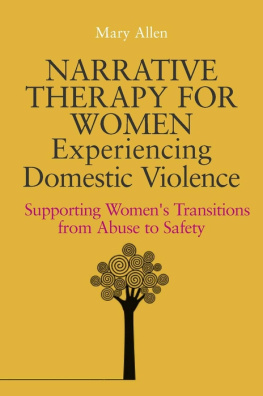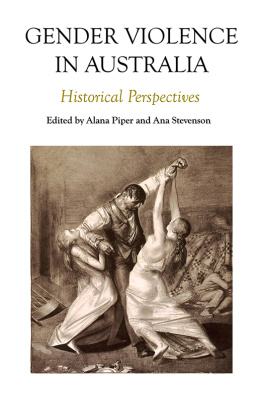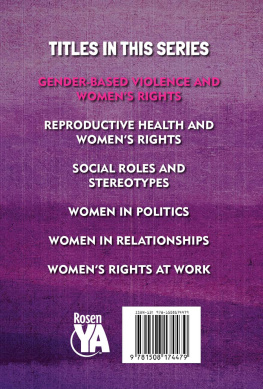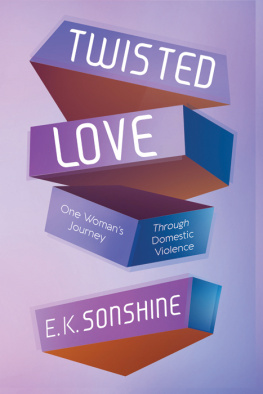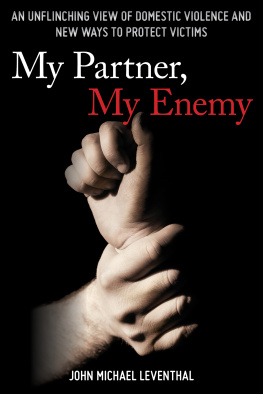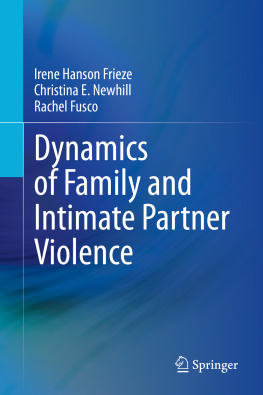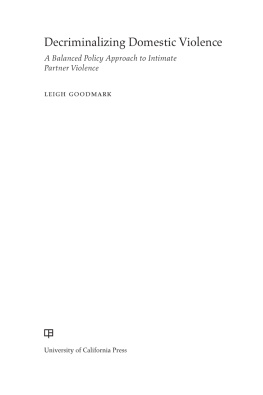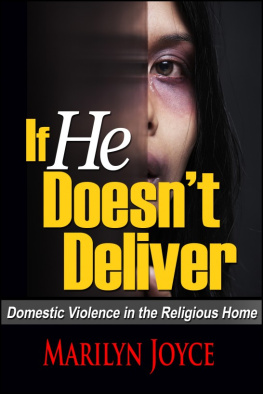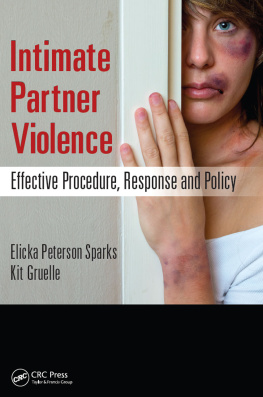
Social Work and Intimate Partner Violence
Intimate partner violence is now recognised as a serious human rights abuse and increasingly as an important public health problem with severe consequences for women's physical, mental and sexual health. Therefore, a comprehensive understanding of intimate partner violence is an essential aspect of good-quality social work practice. This is an accessible introduction to the complexities of social work practice with abused women, as well as men.
Designed for those new to practice in this area, it outlines and explores some of the key issues from an international perspective, such as the role and responsibilities of a social worker, prevalence rates and research around causes and consequences. It includes chapters on working with women with additional vulnerabilities, working with perpetrators, impacts on physical and mental health, child protection issues, assessment and intervention strategies, and long-term approaches.
Social Work and Intimate Partner Violence is an up-to-date book bringing together all the most important information in the area for social workers, and is essential reading for all students and newly qualified professionals.
Mary Allen is Lecturer in Social Work at University College Dublin, Ireland.
Social Work and Intimate Partner Violence
Mary Allen
First published 2013
by Routledge
2 Park Square, Milton Park, Abingdon, Oxon OX14 4RN
Simultaneously published in the USA and Canada
by Routledge
711 Third Avenue, New York, NY 10017
Routledge is an imprint of the Taylor & Francis Group, an informa business
2013 Mary Allen
The right of Mary Allen to be identified as author of this work has been asserted by her in accordance with sections 77 and 78 of the Copyright, Designs and Patents Act 1988.
All rights reserved. No part of this book may be reprinted or reproduced or utilised in any form or by any electronic, mechanical, or other means, now known or hereafter invented, including photocopying and recording, or in any information storage or retrieval system, without permission in writing from the publishers.
Trademark notice: Product or corporate names may be trademarks or registered trademarks, and are used only for identification and explanation without intent to infringe.
British Library Cataloguing in Publication Data
A catalogue record for this book is available from the British Library
Library of Congress Cataloging-in-Publication Data
Allen, Mary.
Social work and intimate partner violence / Mary Allen.
p. cm.
1. Family violence. 2. Family violencePrevention.
3. Family social work. 4. Victims of family violenceServices for.
5. Child welfare. I. Title.
HV6626.A425 2013
362.82'9253dc23 2012036189
ISBN: 978-0-415-51838-3 (hbk)
ISBN: 978-0-415-51840-6 (pbk)
ISBN: 978-0-203-38766-5 (ebk)
Typeset in Times New Roman
by RefineCatch Limited, Bungay, Suffolk
Contents
Domestic violence, also known as intimate partner violence, is an issue which has been seen to be problematic within social work practice. Social workers, as will be seen later in this book, tend to make decisions on child protection without making assessments of whether or not domestic violence is a factor in their abuse. It is now known that there is an important overlap between such abuse and the abuse of children. Social workers in health and mental health settings also encounter such abuse. However, there is serious criticism of how social workers deal with this abuse, how they understand it, and the extent to which they focus on child protection rather than woman protection. This textbook will explore the many controversies surrounding this serious issue. It will examine the emphasis social workers place on child protection, the lack of consistent assessment guidelines. the emerging belief that abuse by women is equal to that perpetrated by men. women at greatest risk of abuse, the risk of femicide (the murder of women usually in situations of domestic abuse) and the impact of perpetrator programmes. Such issues need to be understood by social workers in practice, and by their managers, as their responses to such abuse will impact on both women's and children's safety. Acquiring a comprehensive understanding of violence against women is an essential aspect of good quality social work practice, whether this practice is carried on within the child protection sector, or within other social work areas.
Adult intimate violence against women
Terminology
Violence against women is an interpersonal experience which has been, over the centuries and across cultures, in turn condoned, tolerated, denied, stigmatised, pathologised, and criminalised. It has also been renamed, from wife battering to domestic violence, spousal abuse to intimate partner violence, each 'name' representing a reframing of this private experience within the public consciousness. Each title used to describe this private experience carries with it a range of implications, emphasising one or more aspects of the experience. For example 'woman battering' implies an emphasis on physical 'battering'. 'Spousal abuse' broadens the concept of abuse, but narrows the context of the relationship of the parties concerned to that between legally married partners.
The terms 'family abuse/violence', 'domestic violence' and 'spousal assault' are used differently in different countries and the meaning is different, particularly in relation to gender. The term 'family violence' implies that all members of the family are engaged in mutual conflict, while the term 'spousal abuse' excludes women who are co-habiting or in dating relationships and women who are abused by their sons or fathers. The term 'battering' obscures the fact that abuse can also be emotional, sexual, psychological or economic ().
The American Medical Association (AMA) defines intimate partner abuse as 'the physical, sexual, and/or psychological abuse to an individual perpetrated by a current or former intimate partner'. The AMA also notes it as 'past or present physical and/or sexual violence between former or current intimate partners, adult household members, or adult children and a parent. Abused persons and perpetrators could be of either sex. and couples could be heterosexual or homosexual' ().
While the term 'intimate partner abuse' is gender neutral, women are more likely to experience physical injuries and incur psychological consequences of intimate partner abuse. The gendered nature of this crime is indicated by the fact that worldwide research in many arenas has shown that between 90% and 97% of abusive incidents within an intimate relationship are perpetrated by men against women (this will be discussed in greater detail in ). For this reason the terms 'domestic violence' or 'spousal abuse' are misnomers as they obscure the gender of the perpetrator and that of the victim.
'Domestic violence' is undoubtedly the most commonly used title in recent years (.
Definitions of domestic violence
Just as the title used to name the experiences of intimate partner or domestic abuse has varied over time and across important literature in the field, the definition of what exactly is being referred to has also varied. One of the most important definitions of violence against women is that outlined in the 1995 Beijing Declaration and Platform of Action as it is both 'gendered and culturally sensitive':




